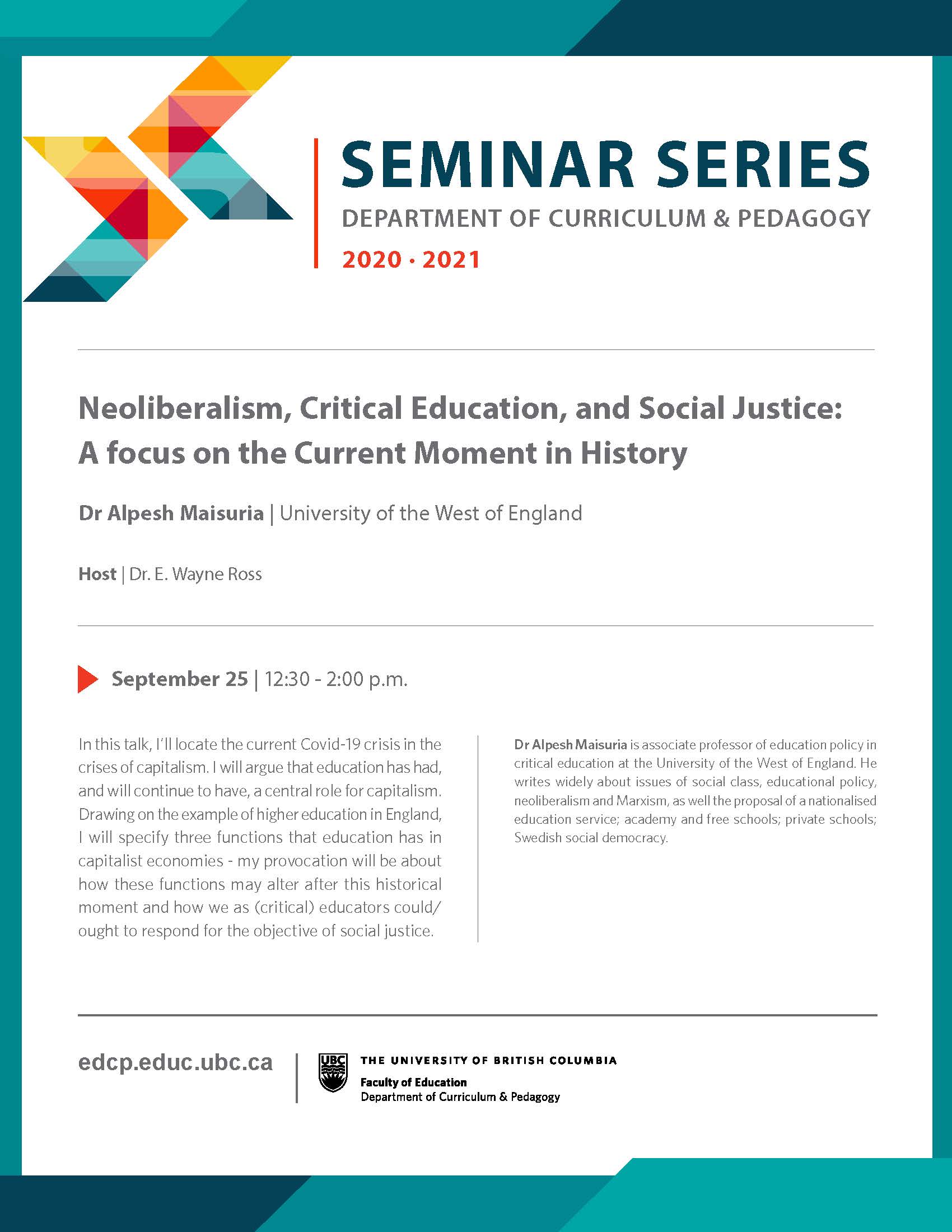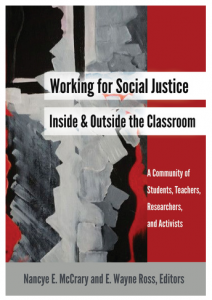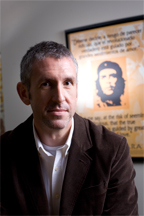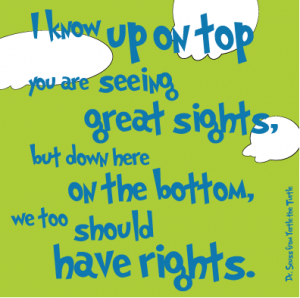THE ROUGE FORUM CONFERENCE 2014
The Struggle for Social Justice Inside and Outside the Classroom
JUNE 5-7, 2014
Denver, Colorado
Metropolitan State University of Denver
Program
All sessions at MSUD, Auraria Campus, Downtown Denver, West Classroom Building. Map:http://goo.gl/hvIWiH
THURSDAY JUNE 5
Conference dinner, location TBA
FRIDAY JUNE 6
8:00-8:30am
Outside West Classroom (WC) 164
Registration/Coffee
8:30-9:00am
WC 155
Opening Session
Chair: C. Gregg Jorgensen (Western Illinois University)
9:00-10:00am
WC 155
Plenary Session
Chair: E. Wayne Ross (University of British Columbia)
Featured Speaker:
Hacking Away at Pearson and the Education-Foundation-Industrial Complex
Alan J. Singer (Hofstra University)
10:00 – 10:15am
WC 164
Coffee & Tea Break
10:15 – 11:30am
Breakout Sessions 1
Breakout 1A – Children and the Social Justice Conversation
WC 259 Presenters:
- Secret City Secret Scourge, Nancye McCrary (St. Catherine College)
- Imagining Ourselves in Children’s Literature: Power Dynamics and Epistemologies amid the Pages and in the Classroom, Mia Sosa-Provencio, University of New Mexico
Breakout 1B – Panel: Engaging Foucault: Rethinking Our Questions
WC 261
Panelists: David Gabbard, Angela Crawford, Marilena “Lenny” Martello, Kelli Kinkela, Sarah Ritter, Mike Boyer, Jennie Moyett, Gregory Martinez, YuWen Chen (Boise State University)
Breakout 1C – Panel: Mapping Knowledge Wealth and Resources in Diverse School Communities
WC 257
Panelists: Kelli Woodrow, Todd Bell, Melanie Bruce, Cathi Brents, Shana Mondaragon (Regis University)
11:30am-1:00pm
LUNCH
1:00 – 2:15 pm
WC 155
Plenary Session
Chair: Doug Morris (Eastern New Mexico University)
Keynote / Adam Renner Memorial Lecture
Saving The Future
David Barsamian (Alternative Radio)
2:15 – 3:00pm
WC 164
Coffee & Tea Break
3:00 – 4:15pm
Breakout Session 2
Breakout 2A – Creating Counter-narratives to Mainstream
WC 259
Presenters:
- The Neoliberal Agenda for Public Education: An Obituary, John Elmore (West Chester University)
- Push It Real Good: Challenging Dominant Discourses on Race in Teacher Education, Madhavi Tandon & Kara M. Viesca (University of Colorado, Denver)
Breakout 2B – Dialogue Session
WC 261
Presenter:
- Changing minds: Teachers’ Perspectives Towards Issues of Diversity and Power, Kelli Woodrow (Regis University) & Victoria Caruana (Regis University)
Breakout 2C – Panel: Angels for AP Excellence: Increasing Students of Color Enrollment and Success in AP Classes
WC 257
Panelists: Kate Greeley, Amanda West, Nathan Merenstein, Niesha Smith, Joey Halik, Ray Pryor, Janae Brown, Rheadawn Chiles, Christine Miller (Denver Public Schools)
4:15 – 4:30pm
WC 164
Coffee & Tea Break
4:30 – 5:45pm
Plenary Session: Performance & Discussion
WC155
Celebrating Pete Seeger
Doug Morris (Eastern New Mexico University)
[End of Day 1. Dinner location TBA]
SATURDAY JUNE 7
8:00-8:30am
Outside WC 164
Registration/Coffee
8:30-10:00am
Openning Plenary Session
WC 155
Chair: Greg Queen (Detroit, MI)
Featured Speaker:
Why it is Possible and Imperative to Teach Revolution—and How!
Rich Gibson (San Diego State University)
10:00 – 10:15am
WC 164
Coffee & Tea Break
10:15 – 11:30am
Breakout Session 3
Breakout 3A – Models of Resistance and Activism
WC 164
Presenters:
- Art, Alienation, and Resistance in the Classroom, Chris Steele (Regis University)
- Faculty Unites with Student Activists to Redesign Education Policy, C. Gregg Jorgensen (Western Illinois University)
Breakout 3B – Responding to Educational Exclusion
WC 259
Presenters:
- Praxis: The Exclusion of Native American Teachers, Richard M. Jones & Terry Albers (Oglala Lakota CollegRe)
- Increasing Options for the Equality of Returning Veterans in the Classroom, Ashley O’Connor (University of Denver)
Breakout 3C – Virtual and For-Profit Higher Education: Implications of Critical Education
WC 257
Presenters:
- Destabilizing Post-secondary Education for Profit, Yvette Powe
- Keeping the Techne in the Classroom: What Marcuse Can Tell Us About MOOCs and the Status of Higher Education, Tyler Suggs (University of Vermont)
Breakout 3D – Voices (Panel)
WC 143
Chair: Lauren Johnston (St. Catharine College)
Panelists: Nancye McCrary, Casey Baryla, Rebecca Just, Rebekah Sams, Amanda Conrad (St. Catharine College)
11:30am-1:00pm
LUNCH
1:00 – 2:15 pm
Breakout Session 4
Breakout 4A – Critical and Revolutionary Pedagogy
WC 259
Presenters:
- Coming to Critical Pedagogy: A Marxist Autobiography in the History of Higher Education, Curry Stephenson Malott (West Chester University)
- What Then Must We Do?. Doug Morris (Eastern New Mexico University)
Breakout 4B Counter-narratives and Critical Consciousness
WC 261
Presenters:
- Teaching Counter-Narratives: Indigenous Peoples, History, and Critical Consciousness, Glenabah Martinez (University of New Mexico)
Breakout 4C Transformative Social Studies Teaching and Learning
WC 257
Chair: E. Wayne Ross
Panelists: Abraham DeLeon (University of Texas, San Antonio), Four Arrows (Fielding Graduate University), C. Gregg Jorgensen (Western Illinois University), Curry Stephenson Malott (West Chester University), Greg Queen (Teacher, Detroit, MI), E. Wayne Ross (University of British Columbia), Doug Selwyn (SUNY Plattsburgh)
2:15 – 3:00pm
WC 164
Coffee/tea Break
3:00 – 4:15pm
Breakout Session 5
Breakout 5A – Planning Lessons to Combat Capitalism
WC 259
Presenters:
- Class as the Organizing Principle of History Education, Greg Queen (Teacher, Detroit, MI)
- What Does Lesson Planning Have to do with Capitalism?, Kathryn Young (Metropolitan State University of Denver)
Breakout 5B Social Justice vs. The Psychosis of Success
WC 261
Presenters:
- The Psychosis of Success, Mike Sliwa
- Narrow Focus Classroom Affection, Heightened Social Injustice, Perception of Nigerian Educators, Aladegbola Adebusayo
Breakout 5C Public Memory and Revolutionary Pedagogy
WC 257
Presenters:
- Hip-Hop as Revolutionary Pedagogy, Brad J. Porfilio (Lewis University)
- Distance Makes the Heart Grow Stronger: The Legacy of 9/11, Martin Haber
4:15 – 4:30pm
WC 164
Coffee/tea Break
4:30 – 5:45pm
Plenary Session: Performance & Discussion
WC 155
Chair: Gina Stiens
Sex, Death and Other Deviations from the Common Core
William R. Boyer
Sunday JUNE 8
9:30am – 11:30am
WC 155
Conference Debriefing & Reflections
Steering Committee brunch (location TBA)
[Anyone interested in participating in the RF Steering Committee is invited to attend this meeting]

 Follow
Follow



